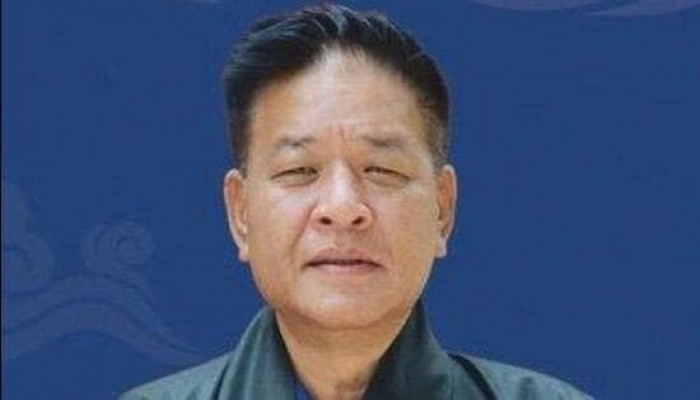Countries should recognise Tibet as an independent country: Penpa Tsering
- In Reports
- 02:45 PM, Sep 04, 2024
- Myind Staff
Countries worldwide should recognise Tibet's historical status as an independent nation to facilitate meaningful dialogue with China about the region's future, according to Penpa Tsering, the Sikyong or head of the Central Tibetan Administration (CTA), on Tuesday.
Speaking at the opening session of the “Spirit of Tibet” festival, Tsering emphasised the Dharamshala-based government in exile’s intention to collaborate with the United States to persuade more nations to challenge Beijing's claim that Tibet has always been part of China. He argued that countries’ acceptance of Tibet as part of the People’s Republic of China (PRC) while advocating for talks between the Dalai Lama and the Chinese government undermines any serious discussions with the Tibetan side.
Tsering stated, "You are removing the very ground for negotiations. When every country says Tibet is part of the PRC, where is the reason for the Chinese government to come and talk to us?" He further claimed that the Chinese government is aware that "they have no legitimacy for their rule in Tibet," and stressed, "We have to puncture those theories."
The CTA has worked with the U.S. administration for two years to pass the Resolve Tibet Act, which highlights Tibet's historical status as an independent country. Now, the Tibetan exile government aims to convince other countries to adopt similar positions to pressure China into negotiations. "We would like to work with other governments to see whether similar positions can be adopted to push the Chinese government to come to the negotiating table," Tsering said.
While Tsering acknowledged that the “middle way” approach—advocated by the Dalai Lama, supported by most Tibetans, and ratified by the Tibetan parliament in exile—remains the official policy for achieving a non-violent resolution with China, he noted a shift in strategy. This change considers the current situation under the "repressive Chinese government" and Tibet's historical state.
Tsering also warned India about the implications of China’s current policies in Tibet, pointing out that more than a million Tibetan children have been forced into "colonial style boarding schools," a move aimed at erasing Tibet’s historical ties with India that date back over 2,000 years. “The Chinese government knows exactly what they’re doing to destroy the Tibetan identity right now,” he said, warning that such actions could alter the "emotional quotient" of Tibetans towards India.
He expressed concern that if younger Tibetans are compelled to adopt Chinese ways of thinking, their reverence and affinity towards India may diminish. Tsering also suggested that India should refer to the disputed frontier with China as the “Indo-Tibetan border,” in response to China's renaming of places to reinforce its claims on contested regions, including its reference to Tawang in Arunachal Pradesh as "southern Tibet."
Describing China as the "biggest bully" in the world, Tsering remarked that the country is collaborating with "other bullies" to create a new world order. He alluded to the ongoing India-China military standoff along the Line of Actual Control (LAC), stating, "It started from the invasion of Tibet in those days and now you have the Chinese on the Indian border, right next to you."
Image source: HT







Comments